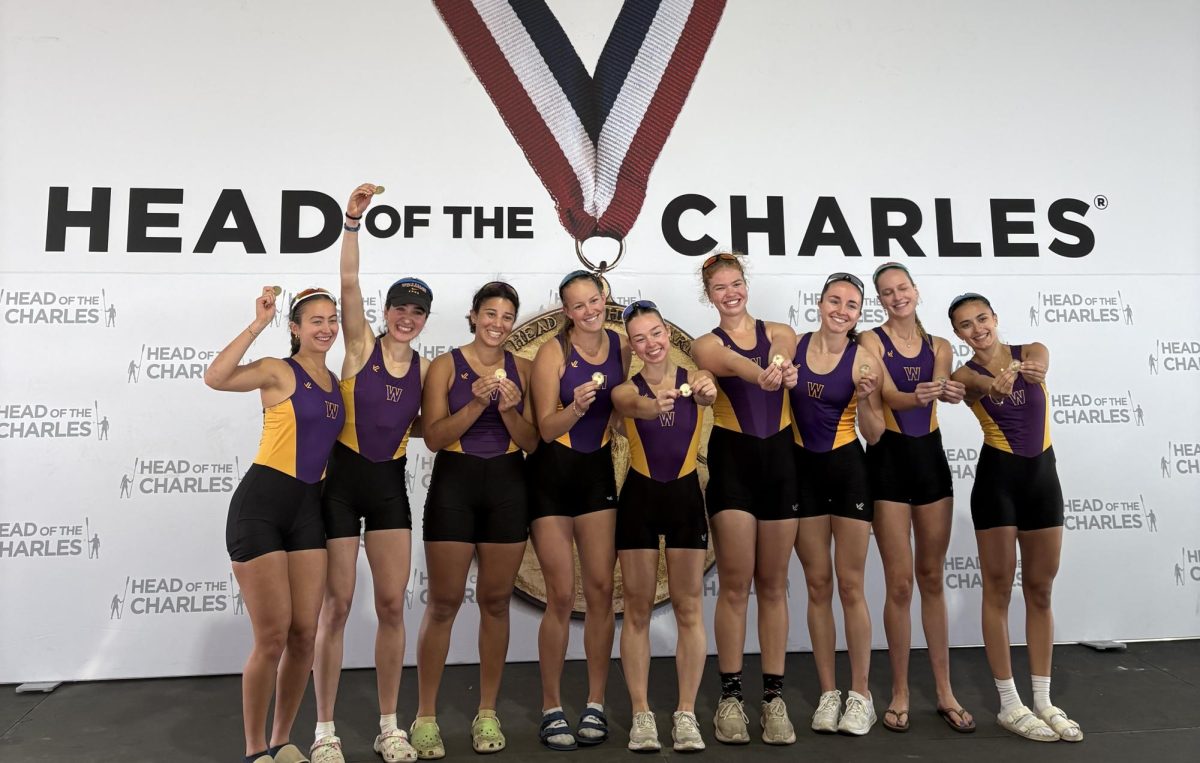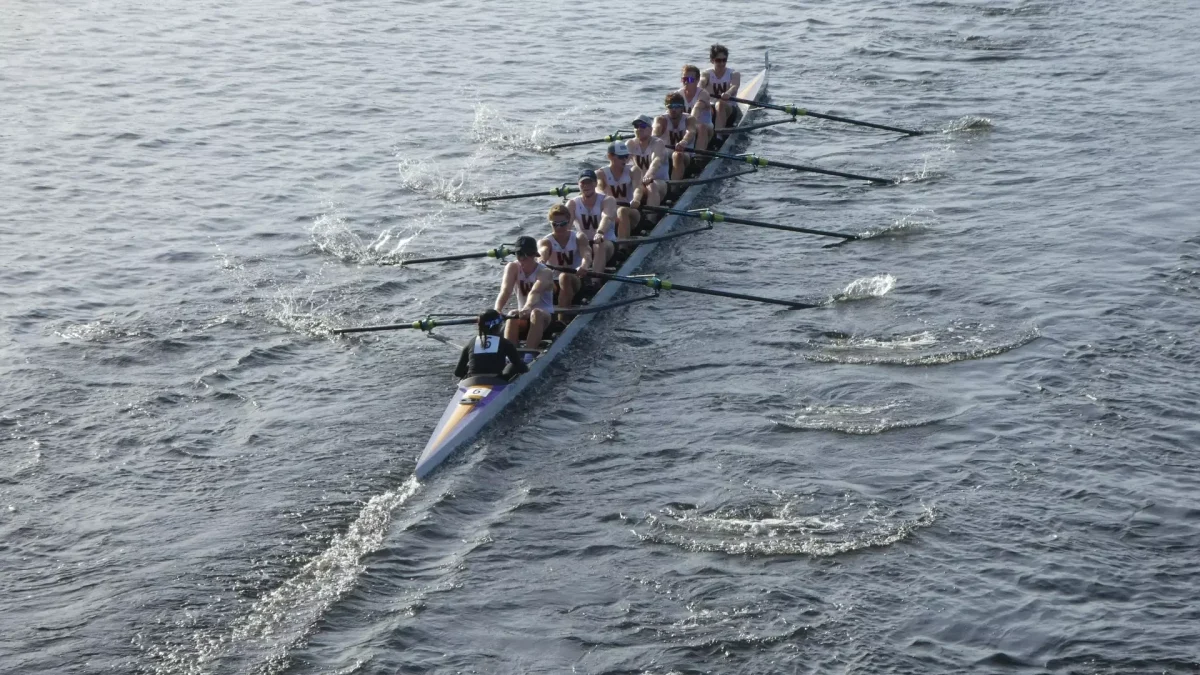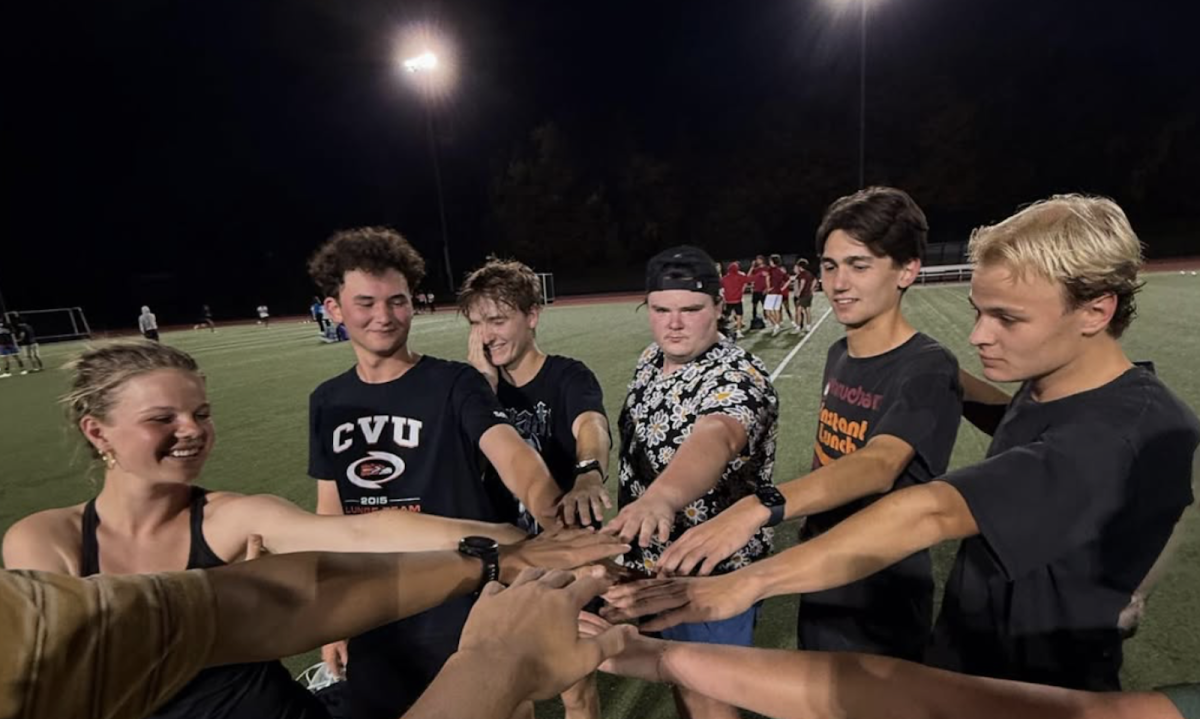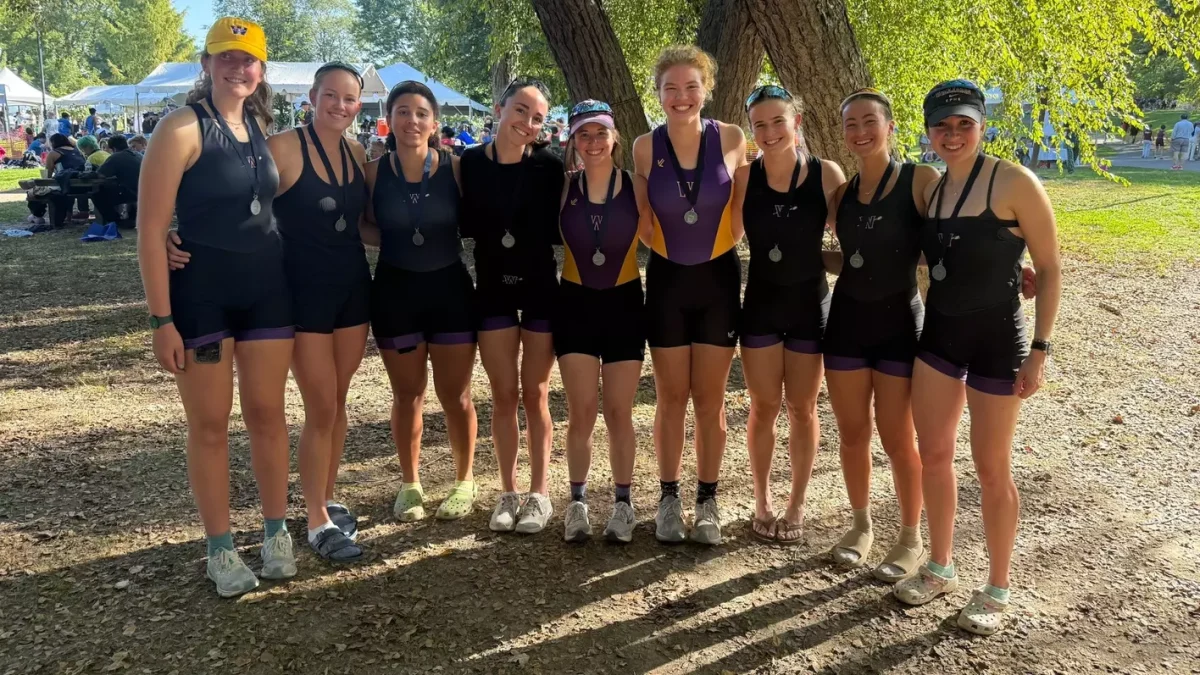
Ryan Rilinger ’20 has been playing sports for as long as he can remember. He joined the pre-kindergarten soccer league back when “the ball was as big as my legs,” he said.
But Rilinger’s journey in sports has not just been about perfecting the athletic craft – previously in swimming, basketball, soccer and now as a lacrosse goalie for the Eph men’s team. As the first publicly out transgender male on the men’s lacrosse team, he navigated the emotional, physical and social challenges of playing a “helmet sport” notorious for upholding notions of traditional male athleticism. For him, sports directly intertwined with his journey of understanding his gender identity, finding inner acceptance and finding community within the team.
Rilinger played on girls’ sports teams as a female. As a swimmer, he hated wearing the tight-fitting swimsuits, especially while struggling with body image and gender identity, he said. Rilinger liked lacrosse because as a goalie, he could have layers of protective gear to cover his body.
He came out as lesbian in high school because it felt like the safest option at that point in his life, he said. Growing up in a religious, conservative town in Sussex County, N.J. “was not a safe environment for LGBT people, to say the least,” he added. Indeed, many teammates and their parents, along with Rilinger’s coaches, expressed being “openly uncomfortable with [Rilinger] playing girls’ sports” due to his presented sexual orientation, he said.
“A [high school] coach I had for lacrosse once commented that I shouldn’t expect to play in games ‘looking like that’ – short haircut, ‘masculine’ clothing – and I did have to sit the bench for a lot of my playing career despite having a talent for it,” Rilinger said. “Across all three sports, there was generally a lot of cold shoulders from coaches and players, a lot of being left out of team things, a lot of working twice as hard in practice to get less minutes in games.”
The fall of 2016, Rilinger came to the College hopeful for a fresh start. He was done with being an outcast, he said. He just wanted to begin his physical transition. He just wanted to be a guy.
“I kind of see transitioning as, ‘I regrettably started on this side of the spectrum. I would just like to be on the other side and just be done with it,’” he said. “Not that I’m trying to disavow my background or whatnot, but for me, being transgender was a matter of necessity to get to a place of comfort, not an identity that I wanted to make a part of my life. I want people to see me as a man, not as a trans man. That doesn’t need to be a part of [public] conversations.”
The decision for Rilinger to continue playing sports in college was a last-minute decision. After an email to men’s lacrosse head coach George McCormack, an in-person conversation with the coaches and the captains and the first pre-season practice, Rilinger was placed as a goalie.
But transitioning on top of joining the men’s team presented unanticipated challenges. “Integrating into that space socially was really difficult,” Rilinger said. “The culture of a male sports team is a very unique situation…. I was expecting some of the classic men’s locker room banter that is very sexualized in nature and very heteronormative and whatnot, but I think I wasn’t really aware [at the time]. There’s going to be jokes about sex and jokes about women, but I can just not join into that, but it was so much more common than I thought it was going to be … I don’t know how to participate in those kinds of conversations.”
Rilinger said the team culture around “locker room talk” has changed significantly over the years, but such interactions were just one of various instances in which Rilinger did not know how to participate in as a man.
“I didn’t know any of the social codes,” he said. “I didn’t know … how to perform [the] expected masculinity. I didn’t know what to do when someone came in for not just like a handshake, but a ‘bro handshake.’”
Feeling detached from the team’s culture and playing alongside his accomplished teammates elevated his insecurities on his athletic abilities as a walk-on, body image and identity. “I was constantly comparing myself to them because in a lot of ways these college athletes on my team exemplify the stereotypical ‘All-American guy’ and that’s something that I’ve been chasing for a long time,” Rilinger said. “I think I was holding myself back because I felt insecure about my place on the team.”
Rilinger struggled especially during practices as he relearned how to be a goalie for men’s lacrosse – a game radically different from women’s lacrosse.
“These were just shots that I’d never seen before,” he said. “I was very much out of my athletic element and my social element and that doesn’t help you socialize on a team – not that anyone on the team didn’t want to socialize with me, but if we had a practice and I barely saved anything at all and then people want to go get dinner afterwards, like, I’m not feeling great about myself.”
The physical transition further added to Rilinger’s pressures, particularly after starting hormone treatment in early 2017.
“My weight and percent muscle went up really fast, which was cool, but actually it made it a little hard to be balanced and coordinated until I got used to my body again,” he said. “Hormone therapy can have a big impact on emotions too, and I struggled personally with stronger emotions than before … It was more of an up and down rollercoaster where I’d feel crazy happy then super sad and I felt out of control.”
In the midst of these struggles, Rilinger hid behind a persona he created — one that was hyper-masculine, one in which he “hated [his] own skin” and one out of touch with his morals. He felt uncomfortable changing in the locker rooms, running to his dorm room to change out of his athletic wear and shower before re-joining the rest of the team for dinner. For a period of time, he wore restrictive binding devices on his chest that bruised his ribcage and made it painful to breathe and stand up straight.
“My connections with people on and off the team would have been a lot healthier if I could just tell them why I’m so upset, why I’m so frustrated,” Rilinger said.
Rilinger got sex reassignment surgery on his chest, more commonly known as top surgery, in July 2018, for which he received an outpouring of support from friends and teammates. The surgery was painful and left Rilinger bedridden for weeks, but the top surgery combined with continued hormone therapy allowed Rilinger to heal from his turbulent transition process.
“I could run and move, and I could let myself be hugged. I never felt that before, ever,” he said.
That year, Rilinger began rebuilding himself and redefining masculinity on his own terms.
“I don’t have to like college football,” he said. “I learned that it’s fine if I want to listen to Taylor Swift. I am still me. I am still a man because I am, not because of what I do.”
Rilinger’s teammates have learned this lesson through his leadership, perseverance and strength. “Ryan taught the team, really, about what courage is,” said Rock Stewart ’20, one of the team’s captains. “He runs the sidelines … and he is a great role model, on and off the field.”
As a senior, Rilinger has worked closely with the athletic department to make athletic facilities all-accessible. He recently began speaking more publicly of his experience, including in a panel at Claiming Williams and at Storytime, in the hopes that his insights would shed light on inclusion in sports teams at the College and build solidarity among those who feel that they do not fit certain societal gender norms.
“I would ask the campus community … to recognize that just because somebody is on a sports team that is associated with a dominant cis-het culture, that not everyone on the team is that way nor do they [all] feel that way,” he said.
Offering this piece of advice as he shared his personal journey at a Storytime event, Rilinger closed with a reflection on what being trans has meant to him.
“I’m not ashamed to be trans,” he said. “It has taught me a lot about self-reflection, the value of giving yourself permission to be who you want to be. I’ve learned I need to live for myself, and that the ‘All-American guy’ I wanted is the one who can look at his soul and own what he sees.”








